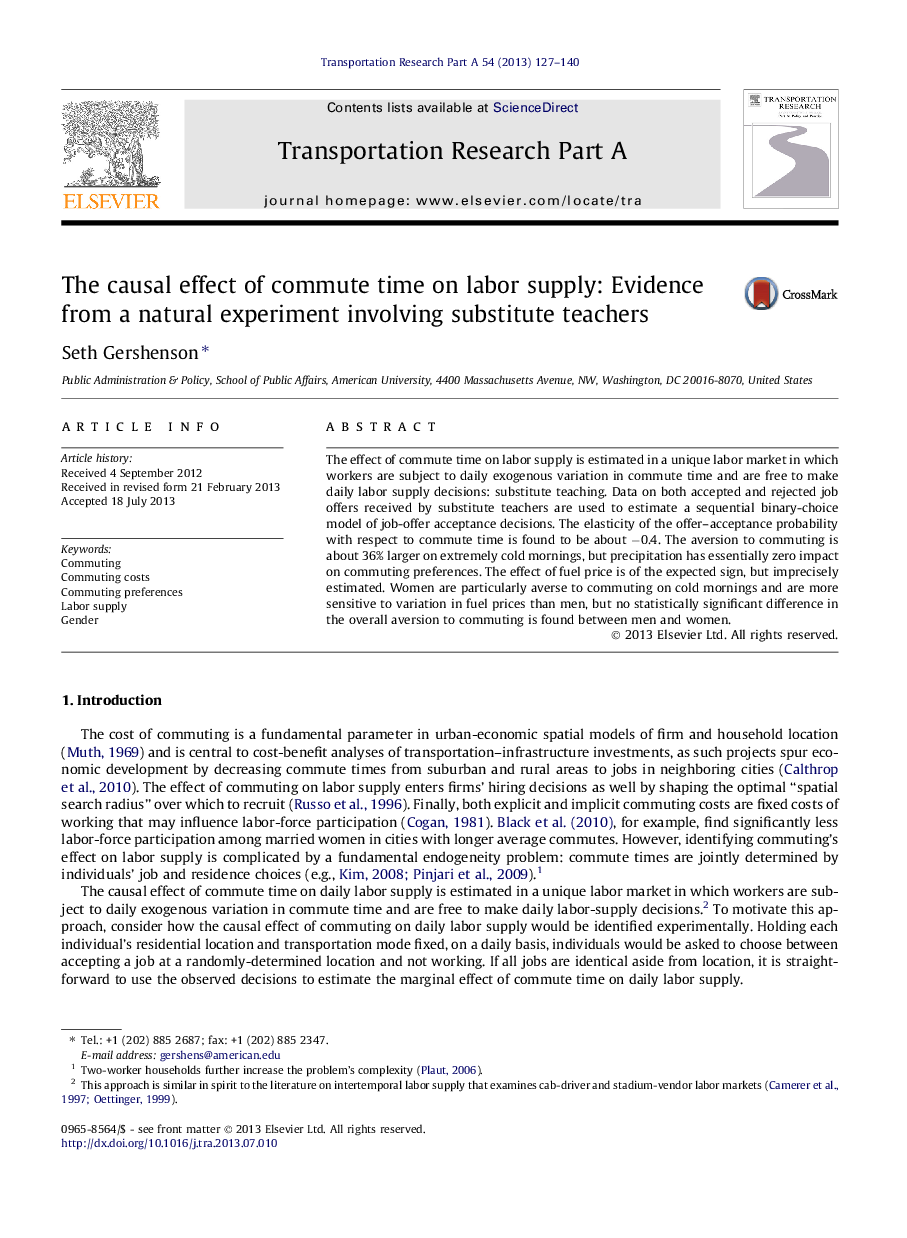| Article ID | Journal | Published Year | Pages | File Type |
|---|---|---|---|---|
| 6781962 | Transportation Research Part A: Policy and Practice | 2013 | 14 Pages |
Abstract
The effect of commute time on labor supply is estimated in a unique labor market in which workers are subject to daily exogenous variation in commute time and are free to make daily labor supply decisions: substitute teaching. Data on both accepted and rejected job offers received by substitute teachers are used to estimate a sequential binary-choice model of job-offer acceptance decisions. The elasticity of the offer-acceptance probability with respect to commute time is found to be about â0.4. The aversion to commuting is about 36% larger on extremely cold mornings, but precipitation has essentially zero impact on commuting preferences. The effect of fuel price is of the expected sign, but imprecisely estimated. Women are particularly averse to commuting on cold mornings and are more sensitive to variation in fuel prices than men, but no statistically significant difference in the overall aversion to commuting is found between men and women.
Related Topics
Physical Sciences and Engineering
Engineering
Civil and Structural Engineering
Authors
Seth Gershenson,
